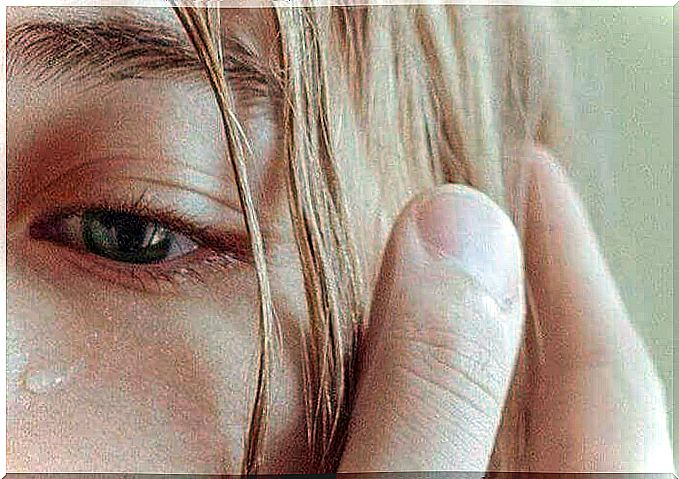Psychological Profile Of An Abuser

Considerable efforts have been made to develop a classification or typology of aggressors. But the research has yet to provide valid empirical data that can support it scientifically. However, there is evidence that there are a number of characteristics common to all abusers. These allow us to determine what is the psychological profile of an abuser.
Traditionally, from an early age, boys and girls are educated differently. Girls are educated from a perspective of care and sensitivity. They are given guidelines to preserve the beauty and attractiveness of their dolls and to show tenderness and piety for others. All this under the protective umbrella of man.
Boys, as a rule, are given toys based on bravery, daring or courage. And they are often exposed to contact sports. The goal is that in the future they will become strong and tough men, without a shadow of weakness and able to protect the ladies.
Determining factors: social influence and traditional values
The media play an essential role in this form of early segregation. Series and films continue to feature the muscular policeman, the male head of household and protector or the vigorous superhero as the main protagonist. And although it was recently and timidly introduced a female analogue, there are still very few films that have a woman as a protagonist saving a man.
Usually, a abuser is someone who has very traditional values and has been brought up in an environment with macho stereotypes. Thus, from childhood, these values are internalized in such a way that already in adulthood they are considered as an ideal that everyone should follow.

Psychological profile of an abuser
Among the two factors mentioned above, it follows that, in the great majority of cases, the victims are women. And the abusers, men. The figures validate this statistical proportion. We will indicate below the most characteristic traits of the abuser.
Cognitive biases: rigid psychology
Abusers often have distorted thoughts about gender roles. They consider the other gender to be inferior to them and justify it through violence. These are people who are full of prejudices, which makes them react violently.
Their signs of intolerance make them tyrants, stubborn, stubborn and undemocratic. Their rigidity of thought means that they systematically impose their personal criteria before any circumstance. They leave no room for criticism, self-criticism or other points of view contrary to their own. They face the confrontation with despotism.
Inability to solve problems
Their cognitive inflexibility prevents them from learning or finding solutions to their problems. This may be due to the fact that they exhibit polar or dichotomous thinking. In other words, they position themselves in one of two extremes: good or bad. There is no intermediate measure.
Evidence explains that they see all black or all white because they were brought up by that standard. This is Gen. children éralement people providing a very strict upbringing and right.
Low self-esteem
Their childhood marked the course of his emotional development. Consequently, the psychological profile of an abuser reveals a significant lack of self-esteem. This lack of respect and love for oneself can be the cause or the consequence of mistreatment. Obviously, this behavior is not justified in either of the two cases.
The problem is, they are unaware of their lack of self-esteem. And instead of trying to improve their self-esteem, they choose to adopt a passive-aggressive attitude.
Communication difficulties
This passive resistance in its interaction with people shows their difficulties in communicating effectively with others. In fact, the lack of assertiveness is one of the characteristics of the psychological profile of the abuser.
The way to impose authority and rules is through resentment, stubbornness or neglect. A person who abuses is usually not very assertive, so they do not speak directly or clearly.
Emotional addiction
The main consequence of wear and tear in relationships with others is progressive social isolation. Lacking all kinds of friendships, her attention is focused exclusively on her partner.
Gradually, her romantic relationship turns into an obsession. They generate emotional dependence because they see the other as their only support and the source of all intimacy. And they always demand more, causing the relationship to become sickly.

Need for control
By developing this submission, they feel the need and the obligation to control everything their partner does or feels: their work, the relationships they have with their family, their circle of friends, their tastes… They develop attitudes. of extreme vigilance and sickly jealousy.
Frustration
There are many cases in which, due to professional frustration, abusers release all their anger and rage into the home environment. They exhibit exacerbated irritability and a general lack of impulse control. This type of violence, known as expressive, tends to be reinforced as violent episodes occur.
Without self-control or empathy
The psychological profile of an abuser is characterized by the abusers’ lack of emotional control. They are emotionally illiterate. They have great difficulty expressing what they are feeling, they do not know how to reflect on their inner self and they lack empathy. This deprives them of any remorse for the damage they have done to their victim.
Seductive lie
Normally, they conquer their victim by seducing her. They are manipulative, use lies and false promises, and are able to take on any role to get by.
Although each case is unique, these characteristics constitute the psychological profile of an abuser. We can see how selfish, macho, and manipulative they are, with emotional abuse being their primary means of interacting.









